This article delves into the best local shops for European car repair, offering insights into the variety of services available, customer experiences, and essential tips for selecting the right mechanic for your vehicle.
Why Choose a Specialized European Car Repair Shop?
Choosing a specialized shop for your European vehicle can have significant benefits. These shops typically employ technicians who are specifically trained to work on European brands such as Audi, BMW, and Mercedes-Benz. They possess the knowledge to handle the unique engineering and technology of these vehicles, ensuring that repairs and maintenance are performed to the highest standards. Additionally, specialized shops often have access to OEM (Original Equipment Manufacturer) parts, which can enhance the longevity and performance of your vehicle. By relying on experts who understand the intricacies of European cars, you can enjoy peace of mind knowing your vehicle is in capable hands.
Key Services Offered by European Car Repair Shops
European car repair shops offer a range of services tailored to the specific needs of these vehicles. Key services often include:
- Diagnostics: Utilizing advanced diagnostic tools to identify issues accurately.
- Engine Repair: Addressing complex engine problems with precision.
- Routine Maintenance: Providing oil changes, brake services, and tire rotations designed for European models.
- Transmission Services: Ensuring smooth shifting and performance.
These specialized services are crucial for maintaining the performance and reliability of your European car.
How to Identify a Quality European Car Repair Shop
Identifying a quality European car repair shop involves several critical factors:
- Certifications: Look for shops with certified technicians who have undergone training specific to European vehicles.
- Customer Reviews: Reading online reviews can provide insight into the experiences of other customers.
- Warranty and Guarantees: A reputable shop should offer warranties on their work.
- Transparency: A good shop will provide clear estimates and explain the repair process.
By considering these factors, you can find a shop that meets your needs and provides reliable service.
Top European Car Brands and Their Common Issues
Understanding the common issues associated with popular European car brands can help you anticipate potential problems:
- Audi: Known for electrical issues and oil consumption problems.
- BMW: Common issues include coolant leaks and transmission failures.
- Mercedes-Benz: Frequently experiences issues with air suspension and electrical systems.
Being aware of these issues can help you address them proactively and seek specialized repair services when necessary.
Customer Reviews: What to Look For
Customer reviews are invaluable in guiding your choice of a European car repair shop. Look for:
- Overall Ratings: Higher ratings generally indicate better service.
- Specific Feedback: Pay attention to comments about service quality, pricing, and customer care.
- Response to Complaints: How a shop handles negative feedback can reveal their commitment to customer satisfaction.
By analyzing these aspects, you can make a more informed decision about where to take your vehicle.
Cost of European Car Repairs: What to Expect
The cost of repairs for European cars can vary widely based on several factors, including the make and model of the vehicle, the type of repair needed, and the shop’s location. Typically, repairs can range from a few hundred to several thousand dollars. It’s essential to get multiple estimates and understand what is included in the pricing. Additionally, consider factors such as:
- Parts Availability: OEM parts may be more expensive but can provide better quality.
- Labor Costs: Specialized knowledge often comes with higher labor rates.
Budgeting for these repairs can help you avoid unexpected expenses.
Importance of Regular Maintenance for European Cars
Regular maintenance is critical for the longevity and performance of European vehicles. It helps prevent minor issues from escalating into major problems. Recommended service intervals typically include:
- Oil changes every 5,000 to 10,000 miles.
- Tire rotations and alignments every 6,000 miles.
- Brake inspections at least once a year.
Adhering to these schedules can significantly enhance your vehicle’s reliability and performance.
DIY vs. Professional Repairs: Making the Right Choice
While some minor repairs can be tackled as DIY projects, many European car issues are best left to professionals. Consider the following:
- Complexity of Repairs: Many European vehicles have intricate systems that require specialized tools and knowledge.
- Warranty Concerns: DIY repairs can void warranties, so it’s essential to check before proceeding.
Weighing these factors can help you decide when to seek professional help.
How to Prepare Your Car for Repair
Preparing your car for a visit to the repair shop can streamline the process. Here are some tips:
- Document Issues: Write down any symptoms or problems you’ve noticed.
- Gather Records: Bring service history and warranty information.
- Clear Communication: Be ready to discuss your concerns with the mechanic.
Being prepared can lead to a more efficient and effective repair process.
Warranty Considerations for European Car Repairs
Understanding how warranties work is crucial for European car owners. Many warranties require that repairs be performed at authorized shops to remain valid. Consider the following:
- Read Your Warranty: Familiarize yourself with the terms and conditions.
- Authorized Shops: Ensure that the shop you choose is authorized to perform warranty work.
Being knowledgeable about your warranty can save you money and protect your investment.
Finding European Car Repair Shops Near You
To locate reputable European car repair shops in your area, consider:
- Online Research: Use platforms like Google Maps and Yelp to find local shops.
- Word of Mouth: Ask friends or family for recommendations.
Combining these methods can help you identify trusted options.
Understanding Diagnostic Tools Used in European Car Repairs
Advanced diagnostic tools are essential for accurately identifying issues in European vehicles. Common tools include:
- OBD-II Scanners: Used to read error codes and diagnose problems.
- Specialized Software: Many European brands require proprietary software for diagnostics.
Understanding these tools can give you confidence in the repair process.
Eco-Friendly Practices in European Car Repair Shops
Some European car repair shops are adopting eco-friendly practices, such as:
- Sustainable Parts Sourcing: Using recycled or environmentally friendly parts.
- Waste Management: Implementing recycling programs for old parts and fluids.
Supporting these shops can contribute to a healthier environment.
The Role of Certification in European Car Repair Quality
Certifications are vital for ensuring high-quality repairs. Look for shops that employ technicians with certifications from recognized organizations. These certifications indicate that the technicians have undergone rigorous training and are knowledgeable about the latest technologies and repair techniques. This commitment to quality can lead to better service and more reliable repairs.
How to Build a Relationship with Your Mechanic
Establishing a positive relationship with your mechanic can enhance your overall experience. Consider the following:
- Open Communication: Discuss your concerns and preferences openly.
- Trust Their Expertise: A good mechanic will appreciate your trust and work hard to maintain it.
Building this relationship can lead to better service and a more enjoyable experience.
Future Trends in European Car Repair Services
The European car repair industry is evolving with trends such as the rise of electric vehicles and advancements in repair technologies. Shops are increasingly investing in training for electric vehicle repairs to meet the changing demands of the market. Additionally, new diagnostic technologies are improving the accuracy and efficiency of repairs, making it essential for shop owners to stay updated with industry trends.

Why Choose a Specialized European Car Repair Shop?
When it comes to maintaining your vehicle, especially if you own a European car, selecting the right repair shop is crucial. Understanding the benefits of choosing a shop that specializes in European vehicles can significantly impact your car’s performance and longevity. Specialized shops are equipped with the necessary tools, knowledge, and expertise that are tailored to the unique needs of European automobiles.
One of the primary advantages of opting for a specialized European car repair shop is their in-depth knowledge of specific brands and models. European cars, such as Audi, BMW, and Mercedes-Benz, often come with advanced engineering and technology that require specialized training to repair. Technicians at these shops are usually certified and have undergone extensive training to understand the intricacies of European vehicles. This expertise means they can diagnose problems more accurately, which can save you both time and money in the long run.
Another significant benefit is the access to specialized tools and diagnostic equipment. European vehicles often require specific tools that are not typically found in general repair shops. These tools allow technicians to perform precise diagnostics and repairs, ensuring that your vehicle is serviced to the highest standards. For instance, many European cars use proprietary software for diagnostics, which only specialized shops can access. This capability helps in identifying issues that may not be visible through standard diagnostic methods.
Moreover, specialized European car repair shops tend to use high-quality parts that are specifically designed for your vehicle. Using OEM (Original Equipment Manufacturer) parts ensures that your car maintains its performance and reliability. In contrast, general repair shops may opt for aftermarket parts that might not meet the same quality standards, potentially leading to further issues down the line. By choosing a specialized shop, you can be confident that your car is receiving the best possible components for its repairs.
Additionally, these shops usually offer a range of services tailored specifically for European cars, including routine maintenance, complex engine repairs, and transmission services. Regular maintenance is essential for the longevity of any vehicle, and specialized shops understand the recommended service intervals for different European models. This knowledge allows them to provide proactive care that can prevent major issues before they arise.
Customer service is another area where specialized European car repair shops often excel. Many of these establishments pride themselves on building long-term relationships with their clients. They take the time to explain the repairs needed and why they are essential, allowing you to make informed decisions about your vehicle. This transparency can foster trust and ensure that you feel comfortable returning for future services.
In summary, choosing a shop that specializes in European vehicles offers numerous advantages, including expert knowledge, specialized tools, high-quality parts, tailored services, and excellent customer care. By understanding these benefits, you can make informed decisions about your car maintenance and repairs, ensuring that your European vehicle remains in optimal condition.
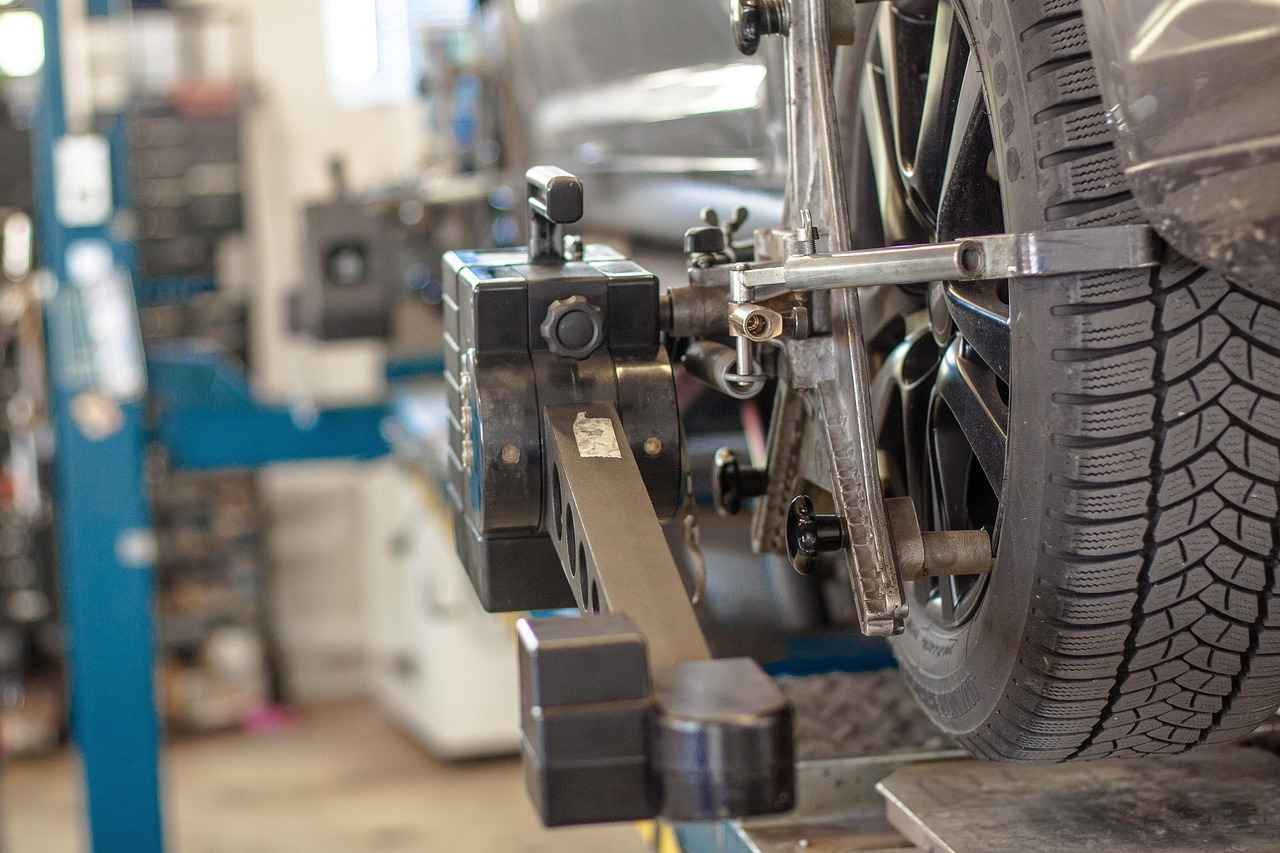
Key Services Offered by European Car Repair Shops
When it comes to maintaining European vehicles, specialized repair shops offer a range of essential services tailored to the unique needs of these high-performance cars. From diagnostics to engine repair, these shops provide expertise that can significantly extend the life and performance of your vehicle.
One of the primary services offered is diagnostic testing. European cars often come equipped with advanced technology that requires specialized tools for accurate diagnostics. Shops that focus on European vehicles typically use state-of-the-art diagnostic equipment to pinpoint issues quickly and effectively. This not only saves time but also ensures that the right repairs are made without unnecessary guesswork. Technicians trained in European car models are adept at interpreting complex codes and data, allowing them to address problems that might be overlooked by general repair shops.
Another crucial service is engine repair. European engines are known for their engineering excellence, but they can also be complex and sensitive. Specialized shops have the knowledge and tools necessary to perform everything from routine repairs to major overhauls. Common engine issues in European cars include oil leaks, overheating, and performance drops. These shops often have access to OEM (Original Equipment Manufacturer) parts, ensuring that repairs are done with high-quality components that match the original specifications of the vehicle.
Routine maintenance is another cornerstone of the services provided by European car repair shops. Regular oil changes, brake inspections, and fluid checks are vital to keeping your vehicle running smoothly. Many shops offer tailored maintenance packages that consider the specific requirements of various European models. For instance, certain brands may require different types of oil or specific intervals for timing belt replacements. By adhering to these recommendations, owners can avoid costly repairs down the line.
Additionally, transmission services are critical for European vehicles, which often feature sophisticated transmission systems. Shops specializing in European cars understand the nuances of these systems and can provide services such as fluid changes, filter replacements, and complete transmission rebuilds. This expertise helps ensure that the vehicle operates at peak efficiency and prolongs the lifespan of the transmission.
Suspension and steering services are also essential offerings. European cars are designed for superior handling and performance, which means that their suspension systems must be kept in optimal condition. Specialized shops can perform alignment checks, shock absorber replacements, and other suspension-related services to maintain the vehicle’s handling characteristics.
Furthermore, electrical system diagnostics and repairs are vital, as many European cars rely heavily on complex electrical systems for everything from engine management to infotainment features. Experienced technicians can troubleshoot and repair electrical issues, ensuring that all systems function correctly.
In summary, European car repair shops provide a comprehensive suite of services that cater specifically to the needs of these vehicles. From advanced diagnostics to routine maintenance and specialized repairs, these shops ensure that your European car remains in top condition. By choosing a shop that specializes in European vehicles, owners can benefit from the expertise and experience necessary to keep their cars running smoothly and efficiently.

How to Identify a Quality European Car Repair Shop
When it comes to maintaining your European vehicle, selecting a quality car repair shop is crucial. Not only do you want to ensure that your car receives the best possible care, but you also want to build a relationship with a mechanic you can trust. Here are the critical factors to consider when searching for a reliable European car repair shop.
Start your search by gathering recommendations from friends, family, or online forums. Personal experiences can provide valuable insight into the reliability and quality of service offered by local shops. Additionally, consider checking online review platforms such as Yelp or Google Reviews. Look for shops that consistently receive positive feedback, particularly from customers who own similar European models.
One of the most important indicators of a quality repair shop is the certifications held by its technicians. Look for shops that employ ASE-certified mechanics, as this certification indicates a high level of expertise and knowledge. Furthermore, some shops may have specific certifications for European brands, such as BMW or Audi, which can further assure you of their capabilities in handling your vehicle.
Choosing a shop that specializes in European car repairs is essential. European vehicles often have unique engineering and parts that require specialized knowledge. A shop familiar with your car’s make and model will be more adept at diagnosing issues and performing repairs accurately. Ask about their experience with your specific brand and model to gauge their expertise.
A quality repair shop will prioritize transparency in its dealings. This means providing clear estimates, explaining necessary repairs, and keeping you informed throughout the process. A reputable shop will encourage questions and be willing to explain their findings in layman’s terms. Pay attention to how staff communicates with you; a friendly and patient demeanor is often a good sign of quality service.
Inquire about the warranties or guarantees offered on repairs and parts. A shop that stands behind its work will often provide a warranty, ensuring that you are covered if issues arise after the repair. This not only reflects confidence in their work but also offers you peace of mind knowing that you are protected against potential future problems.
Visit the shop to assess its facilities and equipment. A well-maintained shop with modern diagnostic tools is often a good indicator of quality service. Ensure that the shop has the necessary equipment to handle European vehicles, which may include specialized tools and software for diagnostics. A clean and organized workspace is also a positive sign, as it reflects the professionalism of the shop.
While cost should not be the sole factor in your decision, understanding the pricing structure is important. Request a detailed estimate before agreeing to any work, and compare it with other local shops. Be wary of prices that seem too low, as they may indicate subpar service or the use of inferior parts. Conversely, high prices do not always guarantee quality, so it’s essential to balance cost with the other factors mentioned.
In summary, identifying a quality European car repair shop involves thorough research, understanding certifications, ensuring specialization, maintaining transparent communication, and evaluating the facility and pricing. By considering these factors, you can make an informed decision that ensures your vehicle receives the top-notch service it deserves.
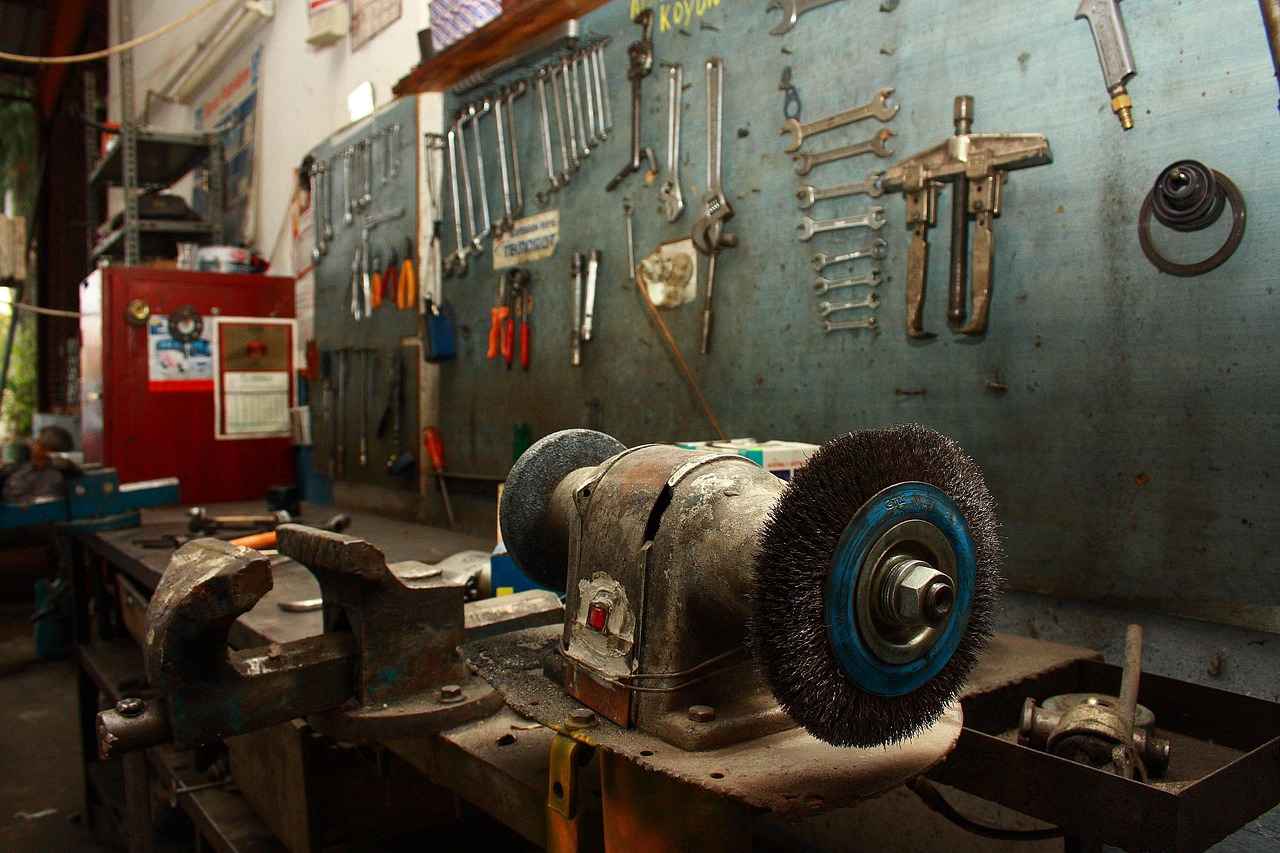
Top European Car Brands and Their Common Issues
When it comes to luxury and performance, European car brands like Audi, BMW, and Mercedes-Benz stand out as some of the most sought-after vehicles on the market. However, owning a European car comes with its unique set of challenges, particularly regarding mechanical issues. Understanding these common problems can help owners make informed decisions about maintenance and repairs.
Audi is renowned for its advanced technology and sleek designs. However, one of the most frequent mechanical issues reported by Audi owners is related to the engine oil consumption. Many Audi models, especially those equipped with the 2.0T engine, have been noted to consume oil at a higher rate than expected. This can lead to engine damage if not monitored closely. Additionally, electrical problems are common, particularly with the MMI (Multi Media Interface) system, which can malfunction and lead to navigation and audio system issues.
BMW vehicles are celebrated for their performance and handling. Yet, they are not without their flaws. One of the most prevalent issues is coolant leaks, often stemming from the water pump or thermostat housing. This can lead to overheating if not addressed promptly. Another common problem is related to the transmission, particularly in older models that may experience rough shifting or failure. Regular maintenance and fluid changes can mitigate some of these issues, but owners should remain vigilant.
Mercedes-Benz vehicles are synonymous with luxury and reliability, but they too have their share of mechanical concerns. One significant issue is with the air suspension, particularly in models equipped with the AIRMATIC system. Over time, air struts can fail, leading to a bumpy ride and costly repairs. Additionally, many Mercedes owners report issues with the electrical systems, especially in newer models where complex electronics can lead to intermittent faults, impacting everything from the infotainment system to engine performance.
| Brand | Common Issues | Suggested Maintenance |
|---|---|---|
| Audi | Engine oil consumption, electrical problems | Regular oil checks, software updates |
| BMW | Coolant leaks, transmission issues | Frequent coolant checks, transmission fluid changes |
| Mercedes-Benz | Air suspension failure, electrical faults | Regular inspections, prompt electrical diagnostics |
In conclusion, while European car brands like Audi, BMW, and Mercedes-Benz offer exceptional performance and luxury, they also present unique mechanical challenges. Understanding these common issues is essential for any owner. Regular maintenance and prompt attention to problems can help mitigate costly repairs and ensure that these vehicles continue to deliver the driving experience for which they are known.

Customer Reviews: What to Look For
When it comes to selecting a European car repair shop, customer reviews play a crucial role in guiding your decision. These reviews provide invaluable insights into the experiences of others, helping you to gauge the quality of service and expertise offered by various shops. However, it’s important to know how to interpret these reviews effectively to make an informed choice.
- Types of Feedback: Customer reviews typically fall into two categories: positive and negative. Positive reviews often highlight exceptional service, skilled technicians, and fair pricing. In contrast, negative reviews may point out issues such as poor customer service, unresolved mechanical problems, or inflated costs.
- Patterns and Trends: Look for recurring themes in the reviews. If multiple customers mention the same issue, such as long wait times or ineffective repairs, it may indicate a systemic problem within the shop. Conversely, consistent praise for a particular technician or service can be a strong indicator of quality.
- Specificity: Reviews that provide detailed accounts of the customer’s experience are generally more valuable than vague comments. A review that explains the exact services performed, the cost involved, and the outcome offers a clearer picture of what to expect.
- Response from the Shop: Pay attention to how the repair shop responds to reviews, especially negative ones. A professional and constructive response can show that the shop values customer feedback and is willing to address concerns. This can be a good sign of their commitment to customer satisfaction.
- Star Ratings: While star ratings are a quick way to gauge overall satisfaction, they should not be the sole factor in your decision-making process. A shop with a high rating but few reviews may not be as reliable as one with a moderate rating and a large number of detailed reviews.
Where to Find ReviewsYou can find customer reviews on various platforms, including Google, Yelp, and automotive forums. Each platform may provide different perspectives, so it’s wise to check multiple sources. Social media can also be a valuable resource, as many shops maintain a presence on platforms like Facebook and Instagram, where customers often share their experiences.
Evaluating the ContextContext is key when reading reviews. Consider the type of vehicle the reviewer owns and their specific repair needs. A review from a customer with a high-performance European car may not be relevant if you’re seeking service for a standard model. Additionally, keep in mind that some reviews may be influenced by individual expectations and experiences, which may not reflect the shop’s overall performance.
Trust Your InstinctsFinally, while customer reviews are a powerful tool, they should be one part of your decision-making process. Trust your instincts and consider visiting the shop in person to assess their professionalism and customer service firsthand. Engaging with the staff and asking questions can provide additional confidence in your choice.
In summary, understanding how to interpret customer reviews can significantly influence your selection of a European car repair shop. By focusing on specific feedback, recognizing patterns, and evaluating the context, you can make a more informed decision that aligns with your vehicle’s needs and your expectations for service quality.

Cost of European Car Repairs: What to Expect
When it comes to maintaining and repairing European cars, understanding the costs involved is crucial for any car owner. European vehicles are often equipped with advanced technology and high-quality components, which can influence the overall cost of repairs. In this section, we will explore the typical costs associated with European car repairs, the factors that can affect pricing, and provide practical tips for budgeting effectively.
The costs of repairs for European cars can vary significantly depending on the make and model, the type of service required, and the location of the repair shop. On average, car owners can expect to pay between $100 to $200 per hour for labor at specialized European repair shops. For example, a simple oil change may cost around $150 to $300, while more extensive services, such as transmission repairs, can range from $1,000 to $3,000 or more.
- Make and Model: Luxury brands like BMW, Audi, and Mercedes-Benz usually incur higher repair costs due to the complexity of their systems and the price of parts.
- Type of Service: Routine maintenance is generally less expensive than major repairs. Services like brake replacements or engine diagnostics can vary widely in cost.
- Location: Repair costs can differ based on geographic location. Urban areas may have higher labor rates compared to rural locations.
- Parts Availability: Genuine parts can be more expensive than aftermarket options, affecting the overall repair cost.
Budgeting for car repairs can be daunting, but with careful planning, you can manage expenses effectively. Here are some tips:
- Regular Maintenance: Keeping up with routine maintenance can prevent larger issues from developing, saving you money in the long run.
- Research Repair Shops: Compare prices and services from multiple repair shops. Look for shops that specialize in European vehicles for the best expertise.
- Set Aside a Repair Fund: Consider setting aside a monthly amount for car repairs. This can help cushion the financial impact when unexpected repairs arise.
- Ask for Estimates: Always request a written estimate before authorizing repairs. This can help you understand the costs involved and avoid surprises.
If your European car is still under warranty, it’s essential to understand how this affects repair costs. Many warranties cover specific repairs, but using non-certified shops may void your warranty. Always check the terms of your warranty and consult with your dealer before proceeding with repairs.
In conclusion, being aware of the typical costs associated with European car repairs, understanding the influencing factors, and budgeting effectively can help you maintain your vehicle without breaking the bank. By taking proactive steps and being informed, you can ensure that your European car remains in excellent condition for years to come.

Importance of Regular Maintenance for European Cars
Maintaining your European vehicle is not just about keeping it looking good; it’s essential for ensuring its longevity, performance, and safety. European cars, known for their sophisticated engineering and high-quality components, require specific care to keep them running optimally. Regular maintenance plays a crucial role in preventing costly repairs and enhancing your driving experience.
Why Routine Maintenance Matters
Routine maintenance helps identify potential issues before they escalate into major problems. European vehicles often come with complex systems, including advanced electronics and high-performance engines. Regular checks allow mechanics to spot signs of wear and tear, ensuring that necessary repairs are made promptly. This proactive approach not only saves money in the long run but also ensures that your car remains reliable and efficient.
Recommended Service Intervals
Understanding the recommended service intervals for your specific vehicle model is vital. Most European manufacturers provide a maintenance schedule in the owner’s manual, which outlines when to perform essential services such as:
- Oil Changes: Typically every 5,000 to 10,000 miles, depending on the model and oil type.
- Brake Inspections: Every 10,000 to 15,000 miles to ensure optimal stopping power.
- Tire Rotations: Generally every 6,000 to 8,000 miles to promote even wear.
- Fluid Checks: Including coolant, brake fluid, and transmission fluid, should be done at least once a year.
Adhering to these intervals helps maintain your vehicle’s performance and can extend its lifespan significantly.
Benefits of Regular Maintenance
Engaging in regular maintenance offers several benefits:
- Enhanced Performance: Regular tune-ups and fluid changes ensure that your vehicle runs smoothly and performs at its best.
- Improved Fuel Efficiency: Well-maintained cars consume less fuel, saving you money and reducing your carbon footprint.
- Increased Resale Value: A vehicle with a documented maintenance history is more attractive to potential buyers.
- Safety Assurance: Routine checks can identify safety issues, such as worn brakes or tires, before they become hazardous.
Choosing the Right Mechanic
Finding a qualified mechanic who specializes in European cars is crucial. Look for shops that have certified technicians familiar with the specific requirements and common issues associated with your vehicle make and model. Reading reviews and getting recommendations can help you find a reliable service provider.
Conclusion
In summary, regular maintenance is essential for the health and performance of European vehicles. By adhering to recommended service intervals and choosing the right mechanic, you can ensure that your car remains in top condition for years to come. Investing in routine maintenance not only enhances your driving experience but also protects your investment in your vehicle.

DIY vs. Professional Repairs: Making the Right Choice
When it comes to maintaining and repairing European vehicles, car owners often face a critical decision: should they attempt to handle repairs themselves or seek assistance from a professional mechanic? This choice can significantly impact both the vehicle’s performance and the owner’s peace of mind. Below, we delve into the pros and cons of DIY repairs versus professional services, helping you determine the best option for your specific situation.
Many car enthusiasts are drawn to the idea of DIY repairs due to the potential cost savings and the satisfaction of completing a task on their own. However, this approach comes with its own set of challenges. Here are some important considerations:
- Cost Savings: One of the most appealing aspects of DIY repairs is the potential to save on labor costs. By handling repairs yourself, you can allocate funds towards quality parts instead.
- Skill Development: Engaging in DIY repairs can enhance your mechanical skills and knowledge about your vehicle, leading to a better understanding of its functions.
- Time Investment: DIY repairs often require a significant time commitment. Depending on the complexity of the repair, you may find yourself spending hours or even days on a task that a professional could complete in a fraction of the time.
- Access to Tools: Proper tools are essential for effective repairs. If you lack the necessary equipment, the cost of purchasing or renting tools can negate any savings.
- Risk of Mistakes: Without professional training, there’s a chance of making errors that could lead to further damage, resulting in higher costs in the long run.
While DIY repairs can be rewarding, there are many scenarios where seeking professional help is the wiser choice. Here are some reasons why you might opt for a professional mechanic:
- Expertise and Experience: Professional mechanics have extensive training and experience, especially with European vehicles, which often require specialized knowledge. This expertise can lead to faster and more accurate diagnoses.
- Warranty Protection: If your vehicle is still under warranty, DIY repairs may void coverage. Professional repairs ensure that your warranty remains intact.
- Advanced Diagnostic Tools: Many issues with European vehicles require sophisticated diagnostic tools that are typically only available in professional shops. These tools can accurately pinpoint problems that might be missed in a DIY setting.
- Time Efficiency: Professionals can complete repairs much more quickly than an inexperienced individual. This efficiency can save you from being without your vehicle for extended periods.
- Quality Assurance: Reputable repair shops often provide guarantees on their work, giving you peace of mind that the repairs will be done correctly.
There are specific situations where DIY repairs may be appropriate. If you have a solid understanding of automotive mechanics and the repair is relatively simple—such as changing oil, replacing air filters, or swapping out a battery—then DIY can be a practical choice. Additionally, if you enjoy working on cars and have the time to invest, DIY repairs can be fulfilling.
Conversely, for complex repairs such as engine work, transmission issues, or electrical system malfunctions, it is often best to leave these to the professionals. European vehicles can be particularly intricate, and a professional mechanic’s expertise can prevent further complications.
Ultimately, the decision between DIY repairs and professional assistance hinges on your experience, the nature of the repair, and your confidence in handling the task. By weighing the pros and cons carefully, you can make an informed choice that will keep your European vehicle in optimal condition.
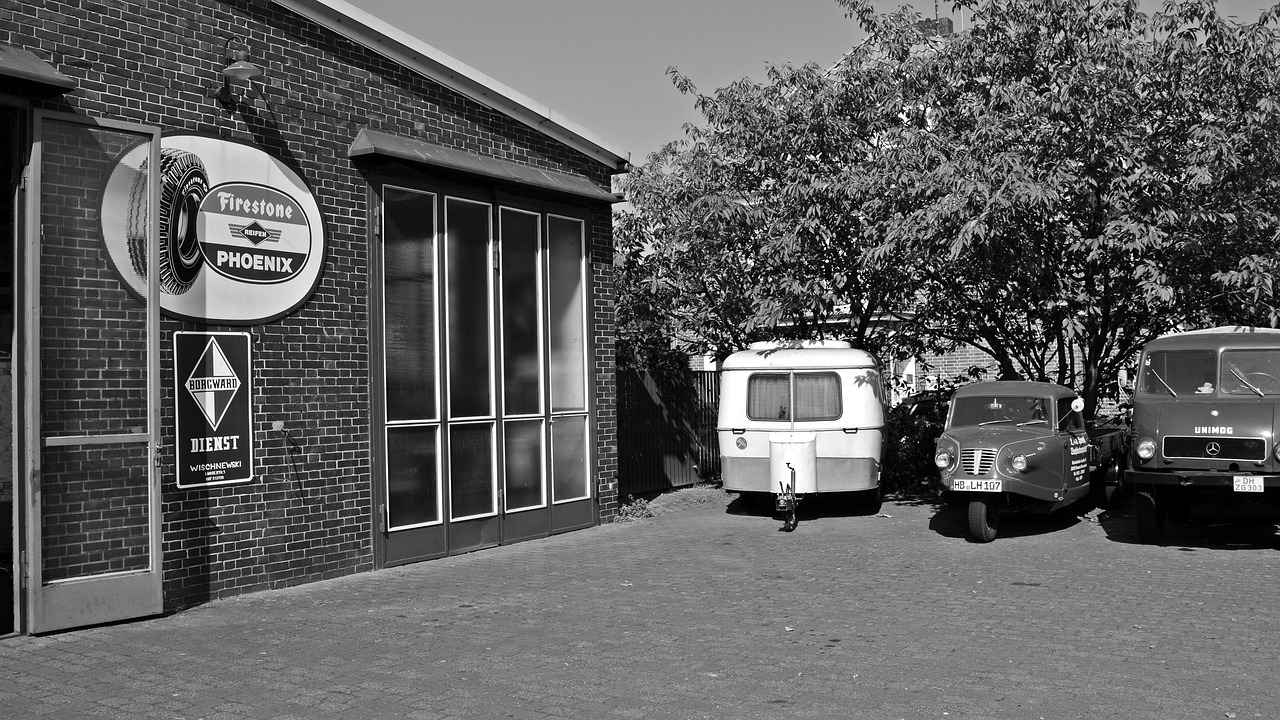
How to Prepare Your Car for Repair
Preparing your European car for a visit to the repair shop can significantly enhance the efficiency of the repair process. Proper preparation not only helps the mechanic diagnose issues more accurately but also ensures that you communicate effectively about your vehicle’s needs. Here are essential steps to take before heading to the shop.
- Gather Relevant Documentation: Collect all necessary documents related to your vehicle. This includes the owner’s manual, previous repair records, and any warranties. Having these documents handy allows the mechanic to understand your car’s history and any previous issues that may be relevant.
- Make a List of Symptoms: Before your appointment, take note of any specific symptoms your car is exhibiting. This could include unusual noises, warning lights on the dashboard, or changes in performance. Be as detailed as possible, as this information can help the mechanic diagnose the problem more quickly.
- Identify Previous Repairs: If your vehicle has undergone previous repairs, especially related to the current issue, inform the mechanic. This can provide crucial context and save time during diagnosis.
- Check for Recalls: Research whether your vehicle has any outstanding recalls. You can typically find this information on the manufacturer’s website. If there are recalls, mention them to the mechanic, as they may be able to address these issues at the same time.
- Clear Out Personal Items: Ensure that your car is free of personal belongings. This not only provides the mechanic with easy access to the areas they need to work on but also protects your items from being misplaced or damaged during the repair process.
- Communicate Specific Concerns: If you have particular concerns or questions about your vehicle, write them down and bring them to the appointment. This ensures that you won’t forget to mention anything important during your discussion with the mechanic.
- Consider Your Warranty: Review your car’s warranty to understand what repairs are covered. This knowledge can help you avoid unexpected costs and ensure that you receive the necessary services without any financial surprises.
- Plan for Transportation: Depending on the nature of the repairs, your car may be in the shop for an extended period. Arrange alternative transportation in advance, whether it’s a rental car, public transport, or a ride from a friend.
By taking these steps, you can ensure that your visit to the repair shop is as smooth and efficient as possible. This preparation not only saves time but also enhances communication between you and the mechanic, leading to a more effective repair process. Remember, a well-prepared customer is a valuable asset in any repair scenario, especially when dealing with the intricacies of European vehicles.
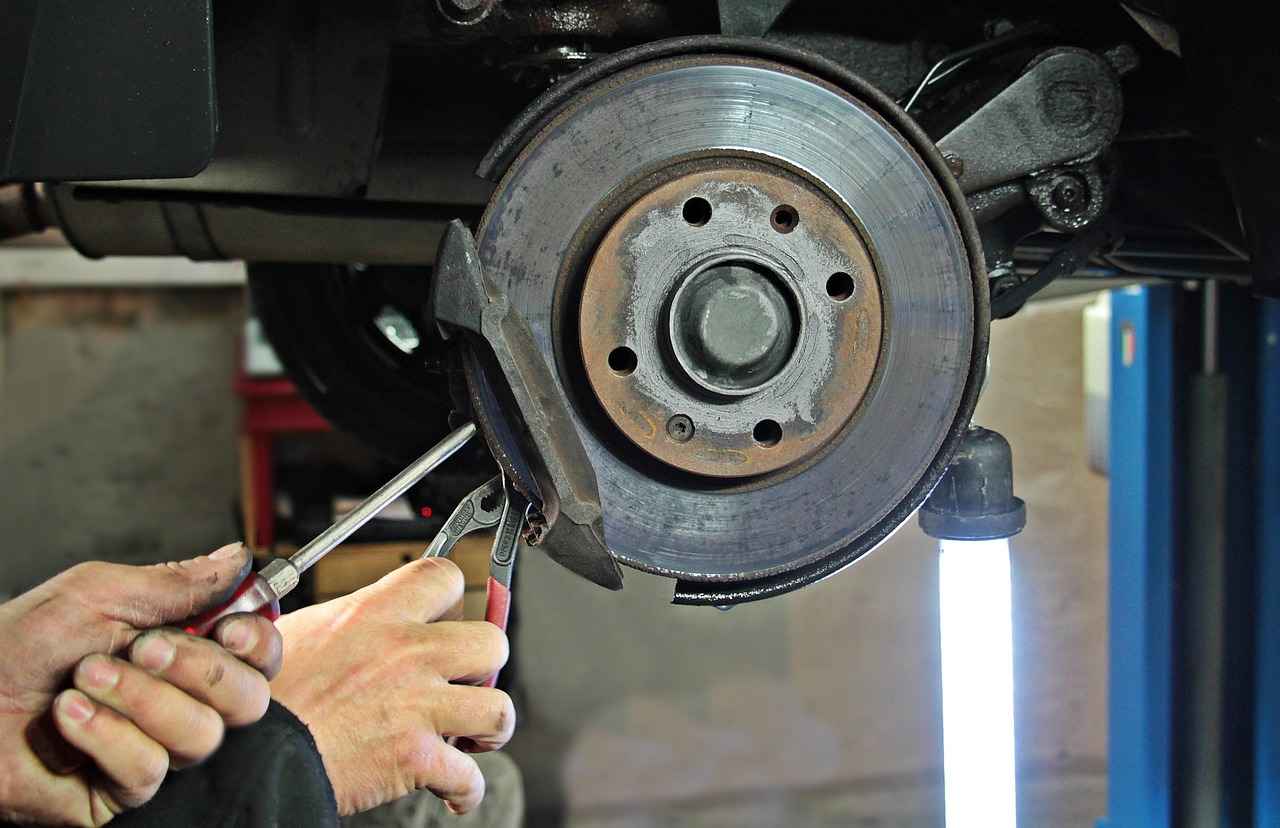
Warranty Considerations for European Car Repairs
When it comes to owning a European car, understanding the intricacies of your vehicle’s warranty is crucial. Warranties are designed to protect you from unexpected repair costs, but they also come with specific conditions that must be adhered to in order to remain valid. This section will delve into how warranties affect repairs and maintenance for European cars, as well as provide essential tips for ensuring your warranty remains intact.
Types of Warranties
- Manufacturer’s Warranty: This is typically provided by the car manufacturer and covers defects in materials and workmanship for a specified period or mileage. It’s essential to know the details, including what is covered and for how long.
- Extended Warranty: Often purchased separately, this warranty extends coverage beyond the manufacturer’s warranty. Understanding what is included in this warranty can save you significant costs on repairs.
- Powertrain Warranty: This covers the engine, transmission, and drivetrain components. It’s crucial for European cars, which can have expensive powertrain repairs.
Impact of Warranties on Repairs
Warranties can significantly influence your options for repairs. For example, if your car is still under the manufacturer’s warranty, you may be required to have repairs performed at an authorized dealership or service center. Failing to comply with this requirement can void your warranty. Additionally, using non-genuine parts for repairs may also lead to warranty issues. It’s essential to keep all documentation and receipts from repairs to ensure that you have proof of work done in compliance with warranty terms.
Maintaining Your Warranty
To keep your warranty valid, regular maintenance is key. Most warranties stipulate that you must follow the manufacturer’s recommended maintenance schedule. This includes routine services such as oil changes, brake inspections, and tire rotations. Keeping a detailed service record is vital, as it provides evidence that you have adhered to the maintenance requirements. If you decide to perform any DIY maintenance tasks, be sure to document them thoroughly, as this can also help in maintaining your warranty.
Choosing the Right Repair Shop
When selecting a repair shop for your European vehicle, it’s important to choose one that understands warranty requirements. Look for shops that are familiar with your specific car brand and model. Many independent shops are authorized to work on European cars and can provide quality service without voiding your warranty. Always inquire about their experience with warranty repairs and whether they use OEM (Original Equipment Manufacturer) parts, as this can be a requirement for maintaining your warranty.
Common Warranty Pitfalls
- Neglecting Maintenance: Skipping regular maintenance can lead to significant issues down the line and may void your warranty.
- Using Unauthorized Parts: Installing aftermarket parts can sometimes lead to warranty claims being denied.
- Failing to Document Repairs: Keeping track of all service records is essential for warranty claims.
In summary, understanding how warranties affect repairs and maintenance for European cars is vital for any car owner. By adhering to warranty conditions, maintaining proper documentation, and choosing the right repair shop, you can ensure that your vehicle remains protected against unexpected repair costs. This proactive approach not only safeguards your investment but also enhances the longevity and performance of your European car.
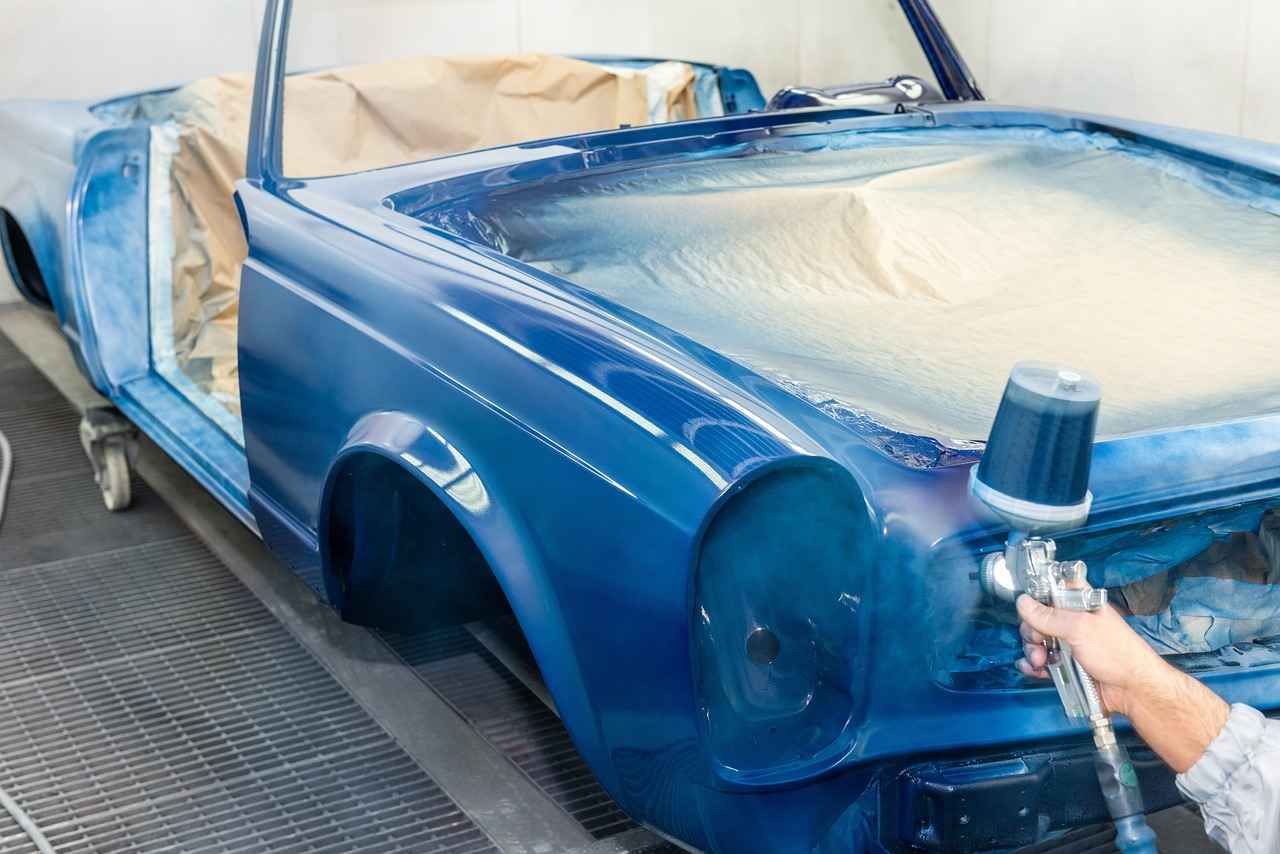
Finding European Car Repair Shops Near You
When it comes to maintaining your European vehicle, finding a reputable car repair shop in your local area is crucial. The unique engineering and technology of European cars, such as Audi, BMW, and Mercedes-Benz, necessitate specialized knowledge and tools that not every mechanic possesses. To aid you in your search, here are several effective strategies for locating trustworthy European car repair shops nearby.
- Utilize Online Resources: The internet is a powerful tool for finding local businesses. Websites like Google Maps, Yelp, and Angie’s List provide user-generated reviews and ratings for various car repair shops. When searching, use specific keywords such as “European car repair” or “BMW service” along with your location to narrow down your options. Pay close attention to the number of reviews and the overall rating; a shop with a high volume of positive feedback is often a good sign of quality service.
- Seek Local Recommendations: Word-of-mouth referrals can be one of the most reliable ways to find a reputable European car repair shop. Talk to friends, family, or colleagues who own European vehicles and ask about their experiences. Local car enthusiast groups or forums can also provide valuable insights and recommendations based on personal experiences. Engaging with people who share your interests can lead you to hidden gems that may not be as visible online.
- Check for Certifications: Before settling on a repair shop, verify whether the technicians are certified to work on European cars. Look for certifications from organizations such as the National Institute for Automotive Service Excellence (ASE) or specific manufacturer certifications. These credentials indicate that the technicians have undergone rigorous training and possess the necessary skills to handle your vehicle’s unique needs.
- Visit the Shop: Once you’ve narrowed down your options, consider visiting the shops in person. A clean, organized, and well-maintained facility often reflects the quality of service you can expect. While there, don’t hesitate to ask questions about their experience with your specific make and model. A reputable shop should be willing to discuss their services, warranties, and any other concerns you may have.
- Evaluate Customer Service: Customer service is a crucial aspect of any repair shop. Pay attention to how staff members treat you during your visit or phone call. Are they friendly and willing to help? Do they take the time to explain repairs and costs clearly? Good customer service can make a significant difference in your overall experience and can be an indicator of how they will handle future interactions.
- Read Online Reviews and Ratings: In addition to initial research, continuously monitor online reviews even after you’ve chosen a shop. Platforms like Facebook and Google allow customers to leave feedback about their experiences. Look for patterns in the reviews—consistent complaints about specific issues can be a red flag. Conversely, repeated praise for quality service or expertise can reinforce your choice.
Finding a reliable European car repair shop in your area may take some effort, but it is well worth it for the longevity and performance of your vehicle. By leveraging online resources, local recommendations, and taking the time to visit potential shops, you can ensure that your European car receives the specialized care it deserves. Remember, the right mechanic not only keeps your vehicle running smoothly but also provides peace of mind knowing that your investment is in good hands.

Understanding Diagnostic Tools Used in European Car Repairs
In the realm of automotive repair, especially for European vehicles, the importance of advanced diagnostic tools cannot be overstated. These tools are essential for accurately identifying and troubleshooting issues that may arise in complex vehicle systems. This section delves into the various diagnostic technologies and methodologies employed by professional European car repair shops to ensure precise assessments and effective repairs.
European vehicles are renowned for their advanced engineering and sophisticated electronic systems. To keep up with these complexities, repair shops utilize a variety of diagnostic tools, including:
- OBD-II Scanners: On-Board Diagnostics (OBD) scanners are fundamental tools that connect to a vehicle’s onboard computer. They read and interpret diagnostic trouble codes (DTCs) generated by the vehicle’s systems, providing mechanics with valuable insights into potential issues.
- Multimeters: These devices measure electrical properties like voltage, current, and resistance. They are crucial for diagnosing electrical problems within the vehicle’s systems, such as faulty wiring or malfunctioning sensors.
- Oscilloscopes: Oscilloscopes visualize electrical signals in real-time, allowing technicians to analyze waveforms from various components. This tool is particularly useful for diagnosing issues in ignition systems and fuel injectors.
- Scan Tools: Advanced scan tools offer comprehensive diagnostics, including live data streaming, bi-directional control, and extensive vehicle coverage. They can perform tasks such as resetting service lights and recalibrating sensors.
In addition to hardware tools, software plays a critical role in modern diagnostics. Many European car repair shops utilize specialized software tailored to specific brands, such as BMW ISTA, Mercedes-Benz Xentry, and Audi VAS. These programs provide in-depth analysis and troubleshooting capabilities, enabling technicians to:
- Access manufacturer-specific repair information and wiring diagrams.
- Update vehicle software and firmware to enhance performance and fix bugs.
- Run comprehensive system scans to identify hidden issues that may not trigger warning lights.
While advanced diagnostic tools are invaluable, their effectiveness largely depends on the skill and expertise of the technicians using them. Trained professionals understand how to interpret the data provided by these tools accurately. They can distinguish between genuine faults and false positives, ensuring that repairs are both effective and necessary. Furthermore, experienced technicians often combine diagnostic tool results with their knowledge of common issues specific to European car brands, allowing for a more holistic approach to vehicle repair.
The landscape of automotive diagnostics is continuously evolving, with emerging technologies promising to enhance the accuracy and efficiency of vehicle assessments. Some notable trends include:
- Artificial Intelligence (AI): AI is beginning to play a role in diagnostics, providing predictive analytics that can foresee potential failures before they occur, based on historical data.
- Telematics: With the rise of connected vehicles, telematics systems enable real-time monitoring of vehicle health, allowing for proactive maintenance and quicker diagnostics.
- Augmented Reality (AR): AR tools are being developed to assist technicians during repairs by overlaying digital information onto physical components, enhancing understanding and efficiency in the repair process.
In conclusion, the integration of advanced diagnostic tools and technologies in European car repair shops is vital for delivering high-quality service. These tools, combined with skilled technicians, ensure that vehicle issues are accurately identified and addressed, ultimately enhancing the longevity and performance of European vehicles.

Eco-Friendly Practices in European Car Repair Shops
As the world becomes increasingly aware of the need for sustainability, many European car repair shops are adopting environmentally friendly practices. These initiatives not only help reduce the carbon footprint but also promote a healthier environment for future generations. This article delves into the various eco-friendly practices embraced by these shops, focusing on sustainable parts sourcing, waste management, and energy-efficient operations.
Sustainable Parts Sourcing
One of the most significant steps towards sustainability in car repair is the sourcing of parts. Many European car repair shops are now prioritizing the use of recycled and remanufactured parts. These parts are often just as reliable as new ones but come with a significantly lower environmental impact. By opting for recycled components, shops can help reduce the demand for new materials, which in turn lessens the energy consumption associated with manufacturing.
Additionally, some shops have established partnerships with suppliers who adhere to strict environmental standards. This ensures that the parts they use not only meet quality requirements but also come from sources that practice sustainable manufacturing processes. This commitment to sustainability is increasingly becoming a selling point for customers who are environmentally conscious.
Waste Management Strategies
Effective waste management is another crucial aspect of eco-friendly practices in car repair shops. Many European establishments have implemented comprehensive recycling programs to manage waste generated during repairs. This includes recycling materials such as oil, batteries, and tires. By properly disposing of these materials, shops can prevent harmful substances from entering the environment.
Furthermore, some shops are adopting zero-waste policies, aiming to minimize waste to the greatest extent possible. This includes not only recycling but also reusing materials when feasible. For example, used oil can be reprocessed and used for heating or as a lubricant in other applications. Such practices not only benefit the environment but can also lead to cost savings for the shop.
Energy Efficiency in Operations
Energy consumption is a significant concern for many businesses, including car repair shops. To address this, numerous European repair shops are investing in energy-efficient technologies. This includes using LED lighting, energy-efficient heating and cooling systems, and high-efficiency equipment. By reducing energy consumption, these shops not only lower their operating costs but also contribute to a reduction in greenhouse gas emissions.
Moreover, some shops are exploring the use of renewable energy sources, such as solar panels, to power their operations. This shift not only enhances their sustainability profile but also appeals to customers who value green practices. By showcasing their commitment to energy efficiency, these shops can attract a growing demographic of eco-conscious consumers.
Community Involvement and Education
Beyond their internal practices, many European car repair shops are actively engaging with their communities to promote sustainability. This can include hosting workshops to educate customers about eco-friendly vehicle maintenance practices or participating in local environmental initiatives. By fostering a culture of sustainability, these shops not only enhance their reputation but also contribute to a broader movement towards environmental responsibility.
In conclusion, the adoption of eco-friendly practices in European car repair shops reflects a growing awareness of environmental issues within the automotive industry. Through sustainable parts sourcing, effective waste management, energy-efficient operations, and community involvement, these shops are setting a standard for responsible business practices. As consumers become more environmentally conscious, the demand for such practices is likely to continue to rise, making sustainability a key focus for the future of car repair.
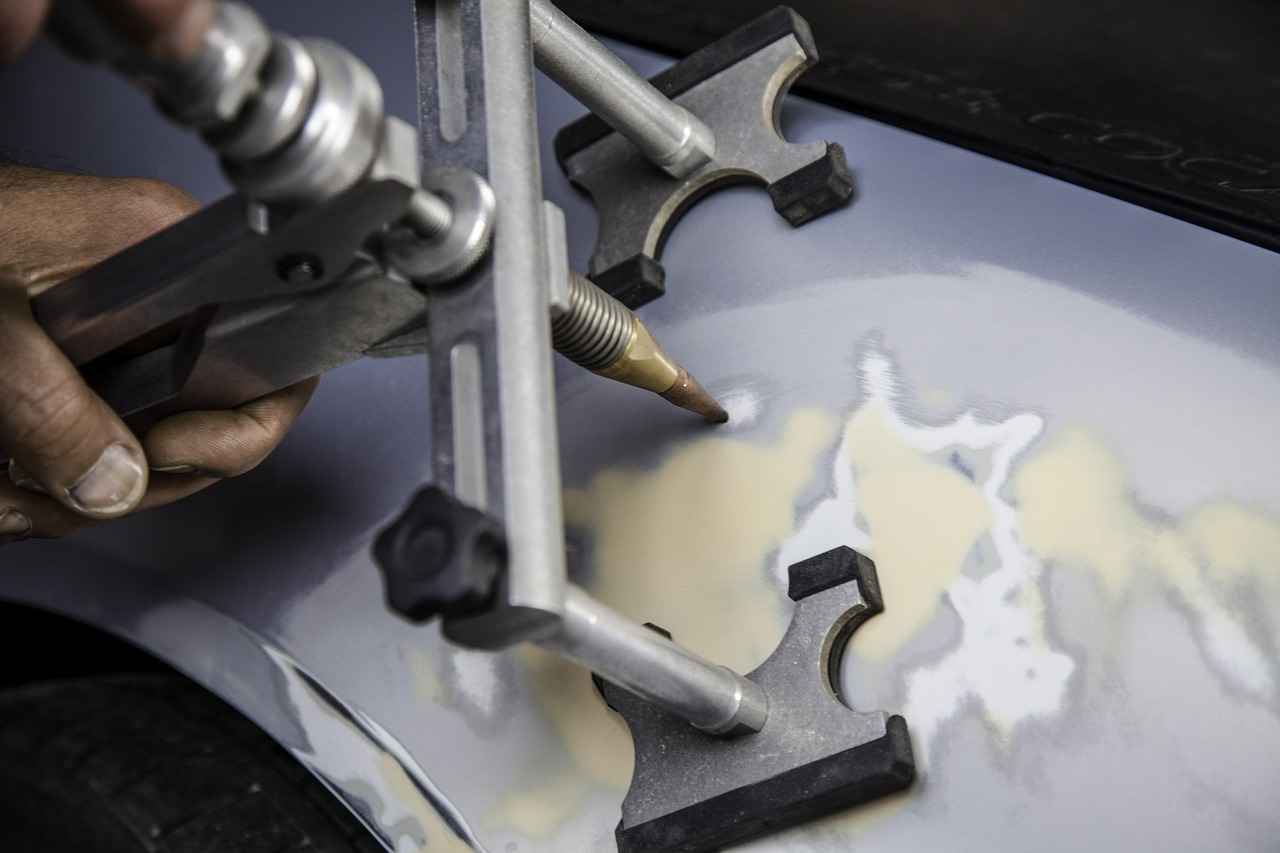
The Role of Certification in European Car Repair Quality
In the realm of European car repairs, the significance of certifications and training for technicians cannot be overstated. As the automotive industry continues to evolve, the complexity of European vehicles demands a high level of expertise to ensure that repairs and maintenance are performed to the highest standards. This article delves into the critical role that certifications play in maintaining quality and expertise in European car repairs.
European cars, renowned for their engineering excellence and advanced technology, require specialized knowledge for effective maintenance and repair. Technicians who possess certifications from recognized institutions demonstrate their commitment to understanding the intricacies of these vehicles. Such certifications often cover a range of topics, including engine diagnostics, electrical systems, and advanced safety features. This specialized training equips technicians with the skills needed to accurately diagnose and resolve issues that may arise in these sophisticated machines.
Moreover, certifications serve as a benchmark for quality assurance. When a shop employs certified technicians, it signals to customers that they prioritize expertise and quality in their services. This not only builds trust with clients but also enhances the shop’s reputation in the community. Customers are more likely to choose a repair shop that employs certified technicians, knowing that their vehicles are in capable hands.
In addition to enhancing the skills of technicians, certifications often require ongoing education and training. This is crucial in an industry that is constantly evolving due to technological advancements. For instance, with the rise of electric and hybrid vehicles, technicians must stay updated on the latest repair techniques and technologies. Certification programs often include modules on new technologies, ensuring that technicians are well-versed in the latest developments in the automotive field.
Furthermore, many certification programs emphasize the importance of adhering to industry standards and best practices. This focus on standards not only improves the quality of repairs but also promotes safety. Technicians trained in certified programs are more likely to follow established protocols, reducing the risk of errors that could lead to further complications or safety hazards.
Another significant aspect of certifications is their ability to foster a culture of professionalism within repair shops. When technicians pursue certifications, they are often more committed to their craft, leading to higher job satisfaction and better performance. This commitment translates into higher-quality repairs and customer service, ultimately benefiting the shop’s bottom line.
In conclusion, the role of certification in European car repair quality is paramount. It not only ensures that technicians possess the necessary skills and knowledge but also builds trust with customers and enhances the overall reputation of repair shops. As the automotive landscape continues to change, maintaining high standards through ongoing training and certification will remain essential for technicians aiming to provide top-notch service in the competitive world of European car repairs.
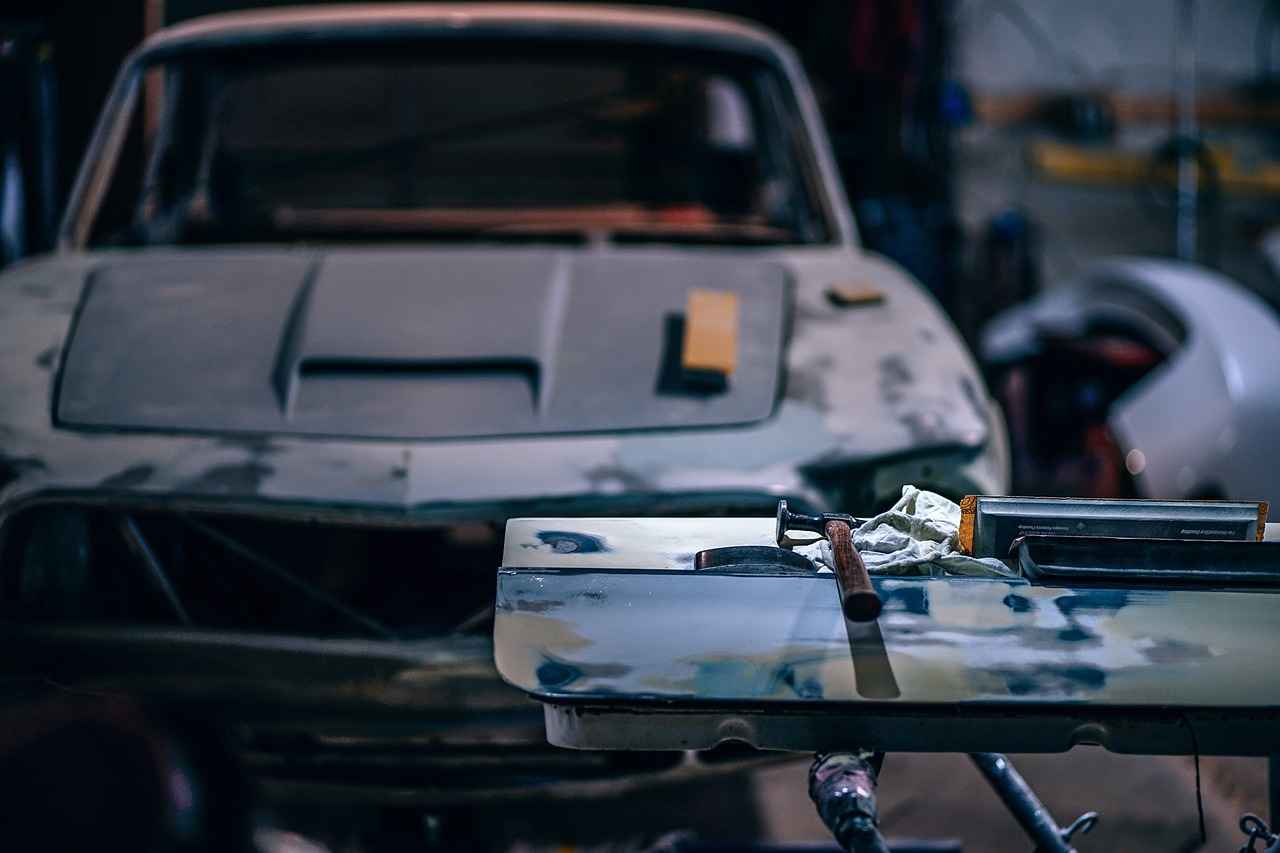
How to Build a Relationship with Your Mechanic
Building a strong relationship with your mechanic is essential for ensuring that your vehicle receives the best care possible. A positive and trusting rapport can significantly enhance your overall experience and the quality of service you receive. Here are some effective tips to help you foster this important relationship.
- Communicate Openly: One of the most crucial aspects of any relationship is communication. When you take your car in for repairs or maintenance, be sure to explain any issues you’ve noticed in detail. This includes sounds, smells, or performance changes. The more information you provide, the better your mechanic can diagnose and address the problem.
- Ask Questions: Don’t hesitate to ask your mechanic questions about the repairs being performed. Inquire about the parts being used, the estimated time for repairs, and any potential long-term issues. This not only shows your interest but also helps you understand the work being done on your vehicle.
- Be Respectful of Their Time: Mechanics often have busy schedules. When you arrive for an appointment, try to be punctual and prepared. If you need to reschedule, give them as much notice as possible. Respecting their time will demonstrate that you value their expertise and service.
- Follow Up: After your vehicle has been serviced, follow up with your mechanic. If you notice anything unusual after the repair, let them know. This feedback is valuable for them to improve their service and address any lingering issues with your vehicle.
- Show Appreciation: A simple thank you can go a long way. If you’re satisfied with the service, express your gratitude. Consider leaving a positive review online or recommending their services to friends and family. This not only strengthens your relationship but also helps their business grow.
- Establish Regular Visits: Consistent visits to the same mechanic can help build familiarity. Regular maintenance checks not only keep your vehicle running smoothly but also allow your mechanic to get to know your car’s specific needs over time. This familiarity can lead to more personalized service.
- Be Honest: If you’re facing financial constraints or have specific concerns about repairs, be honest with your mechanic. They can often work with you to find a solution that fits your budget without compromising the quality of service.
Understanding Their Perspective
It’s also beneficial to understand the perspective of your mechanic. They are professionals who have invested time and resources into their training and tools. Recognizing their expertise and the challenges they face can foster mutual respect. Mechanics often deal with various issues daily, from diagnosing complex problems to managing customer expectations. By acknowledging their skills, you create an environment of trust and collaboration.
Building Trust Over Time
Trust is not built overnight. It requires consistent and positive interactions. As you continue to engage with your mechanic, you will likely notice an improvement in the quality of service and a deeper understanding of your vehicle’s needs. This relationship can lead to better advice on maintenance and repairs tailored specifically to your vehicle.
In conclusion, fostering a positive and trusting relationship with your mechanic is a two-way street. By communicating openly, respecting their time, and showing appreciation, you can enhance your overall service experience. Over time, this relationship will not only benefit you as a car owner but also contribute to the mechanic’s success in their business.

Future Trends in European Car Repair Services
The European car repair industry is undergoing significant transformation, driven by various factors including technological advancements, changing consumer preferences, and the increasing prevalence of electric vehicles (EVs). As we look towards the future, it is essential to understand these emerging trends that are shaping the landscape of car repair services across Europe.
As the world shifts towards sustainability, the rise of electric vehicles is perhaps the most significant trend influencing the European car repair industry. With governments implementing stricter emission regulations and consumers becoming more environmentally conscious, EVs are gaining traction. This shift not only changes the types of vehicles being serviced but also necessitates different repair techniques and tools. Traditional repair shops must adapt to the unique components of EVs, such as high-voltage batteries and electric drivetrains.
Repair technicians will need specialized training to handle these advanced systems safely and effectively. This will likely lead to an increase in certification programs specifically for EV technicians, ensuring that they are equipped with the necessary knowledge and skills. Furthermore, repair shops may need to invest in new diagnostic tools and equipment tailored for electric vehicles, which could increase operational costs but also open up new revenue streams.
Another critical trend is the rapid advancement of repair technologies. The integration of artificial intelligence (AI) and machine learning into diagnostic tools is revolutionizing how mechanics identify and solve vehicle issues. These technologies can analyze vast amounts of data from vehicles to predict potential problems before they arise, allowing for proactive maintenance. This not only enhances the efficiency of repairs but also improves customer satisfaction by minimizing downtime.
Additionally, the use of augmented reality (AR) in repair processes is becoming more prevalent. Technicians can use AR glasses to overlay digital information onto the physical components of a vehicle, guiding them through complex repair procedures. This technology can significantly reduce the time required for repairs and training, making it an attractive option for modern repair shops.
As environmental concerns continue to rise, many European car repair shops are adopting sustainable practices to minimize their ecological footprint. This includes sourcing parts from environmentally responsible suppliers, recycling old components, and utilizing eco-friendly materials in repairs. Shops that prioritize sustainability may not only attract environmentally conscious customers but also benefit from potential government incentives aimed at promoting green practices.
Furthermore, the concept of a circular economy is gaining traction within the industry. Repair shops are increasingly focusing on refurbishing and reusing parts rather than simply replacing them. This approach not only reduces waste but also offers cost savings for both the shop and the customer.
The digital transformation of the car repair industry is another trend that cannot be overlooked. Many repair shops are now utilizing online booking systems and mobile apps to enhance customer convenience. These platforms allow customers to schedule appointments, receive updates on their vehicle’s status, and even make payments online. This level of transparency and ease of access is becoming a standard expectation among consumers.
Moreover, digital marketing strategies are being employed to reach a wider audience. Repair shops are leveraging social media and online reviews to build their brand and attract new customers. The ability to engage with customers online and provide valuable content can significantly enhance a shop’s reputation and competitiveness in the market.
In summary, the European car repair industry is evolving rapidly, influenced by the rise of electric vehicles, advancements in repair technologies, a focus on sustainability, and the integration of digital solutions. Repair shops that embrace these changes are likely to thrive in the future, providing enhanced services and meeting the needs of a new generation of vehicle owners.
Frequently Asked Questions
- What services do European car repair shops typically offer?
European car repair shops usually provide a range of specialized services, including diagnostics, engine repairs, transmission services, and routine maintenance tailored specifically for brands like Audi, BMW, and Mercedes-Benz.
- How can I find a reputable European car repair shop near me?
To find a reliable European car repair shop, consider using online resources like review websites, asking for local recommendations, or checking social media groups dedicated to car enthusiasts in your area.
- Are repairs for European cars more expensive than for domestic cars?
Generally, yes. Repairs for European cars can be more costly due to specialized parts and labor. However, the price can vary based on the specific issue and the shop’s expertise.
- What should I do to prepare my car for a repair appointment?
Before your appointment, make sure to gather any relevant documentation, note specific issues you’ve been experiencing, and communicate these details clearly to your mechanic.
- How do I interpret customer reviews for car repair shops?
Look for patterns in reviews, paying attention to both positive and negative feedback. Focus on comments about service quality, pricing, and overall customer satisfaction to gauge the shop’s reliability.
- Can I perform my own repairs on European cars?
While some minor repairs can be done at home, it’s often best to seek professional help for complex issues, as European cars may require specialized tools and knowledge.
- What are the benefits of regular maintenance for my European car?
Regular maintenance helps ensure your car runs smoothly, enhances performance, and can prevent costly repairs down the line, ultimately extending the life of your vehicle.
- How can I build a good relationship with my mechanic?
Communicate openly, ask questions, and show appreciation for their expertise. Building trust can lead to better service and a more personalized experience.














